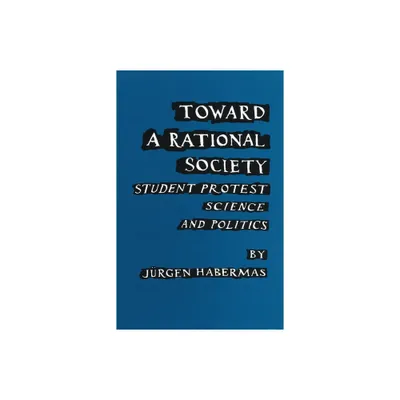Home
Rationality, Hermeneutics and Dialogue: Toward a Viable Postfoundationalist Account of Rationality
Loading Inventory...
Barnes and Noble
Rationality, Hermeneutics and Dialogue: Toward a Viable Postfoundationalist Account of Rationality
Current price: $54.99


Barnes and Noble
Rationality, Hermeneutics and Dialogue: Toward a Viable Postfoundationalist Account of Rationality
Current price: $54.99
Loading Inventory...
Size: Paperback
*Product Information may vary - to confirm product availability, pricing, and additional information please contact Barnes and Noble
What is rationality and how are we to conceive of it today given the major theoretical changes that have profoundly altered our philosophical self-understanding?
Rationality, Hermeneutics and Dialogue
develops a systematic response to these questions, defending an approach to rationality that can meet the demands of a postfoundationalist and pluralistic era.
Engaging critically with the work of Habermas, Gadamer and Foucault, Healy makes the case for a dialogical approach to rationality as a fitting response to postfoundationalist needs. As well as advancing existing scholarship on these theorists,
contributes to filling a significant lacuna in the literature on rationality, as prefigured by Richard Bernstein and others. By showing how the dialogical approach can resolve two challenging contemporary problems for rationality, it demonstrates how critical engagement with the Continental tradition can facilitate the resolution of aporias arising within the Analytic tradition. It thereby sets the scene for a productive and potentially provocative debate about rationality in the twenty-first century.
Rationality, Hermeneutics and Dialogue
develops a systematic response to these questions, defending an approach to rationality that can meet the demands of a postfoundationalist and pluralistic era.
Engaging critically with the work of Habermas, Gadamer and Foucault, Healy makes the case for a dialogical approach to rationality as a fitting response to postfoundationalist needs. As well as advancing existing scholarship on these theorists,
contributes to filling a significant lacuna in the literature on rationality, as prefigured by Richard Bernstein and others. By showing how the dialogical approach can resolve two challenging contemporary problems for rationality, it demonstrates how critical engagement with the Continental tradition can facilitate the resolution of aporias arising within the Analytic tradition. It thereby sets the scene for a productive and potentially provocative debate about rationality in the twenty-first century.


















